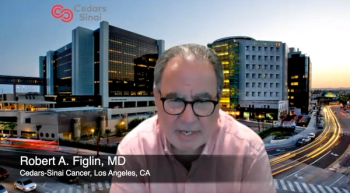
CancerNetwork® sat down with Robert A. Figlin, MD, at the 2021 ASCO Annual Meeting to discuss the results of the KEYNOTE-564 trial with adjuvant pembrolizumab in patients with resected clear cell renal cell carcinoma.

Your AI-Trained Oncology Knowledge Connection!


CancerNetwork® sat down with Robert A. Figlin, MD, at the 2021 ASCO Annual Meeting to discuss the results of the KEYNOTE-564 trial with adjuvant pembrolizumab in patients with resected clear cell renal cell carcinoma.
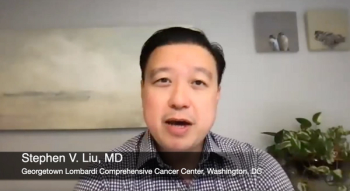
At the 2021 ASCO Annual Meeting, Stephen Liu, MD, discussed the important of findings from the ARROW trial of pralsetinib in patients with RET-altered non–small cell lung cancer.
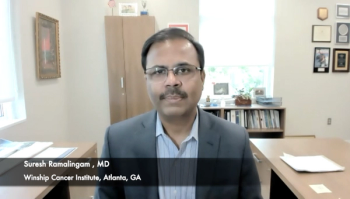
During the 2021 ASCO Annual Meeting, Suresh S. Ramalingam, MD, looked forward to how trials regarding adjuvant therapy for early-stage non–small cell lung cancer are poised to change the treatment paradigm in this setting.
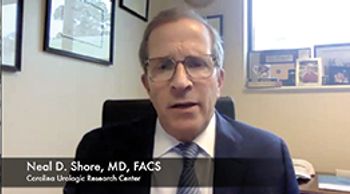
Neal D. Shore, MD, FACS, discusses the importance of multidisciplinary care for patients with advanced prostate cancer.
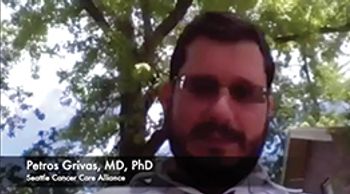
Petros Grivas, MD, PhD, regarding updates in genitourinary oncology that were read out at the meeting.

Petros Grivas, MD, PhD, discusses the impact of avelumab on patients with advanced urothelial carcinoma in the first-line maintenance setting.

CancerNetwork® sat down with Robert A. Figlin, MD, at the 2021 ASCO Annual Meeting to discuss results of the CANTATA trial of cabozantinib with or without telaglenastat.

Ola Landgren, MD, PhD, looks at results from the phase 2 CARTITUDE-2 trial of ciltacabtagene autoleucel for patients with multiple myeloma and 1 to 3 prior lines of therapy presented at the 2021 ASCO Annual Meeting.
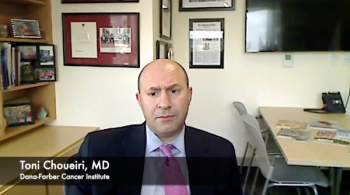
Choueiri detailed combination treatments with follow-up data presented at the 2021 ASCO Annual Meeting.
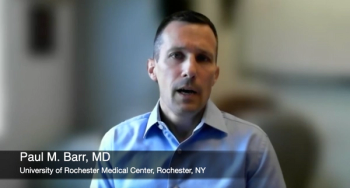
CancerNetwork® sat down with Paul M. Barr, MD, at the 2021 ASCO Annual Meeting to talk about what data has the greatest potential to impact standard treatment of chronic lymphocytic leukemia.
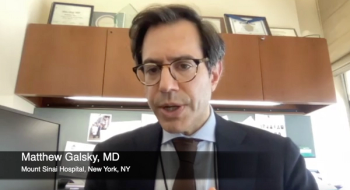
CancerNetwork® sat down with Matthew D. Galsky, MD, at the 2021 ASCO Annual Meeting to discuss his thoughts on research he believes has the greatest potential to impact standard of care treatment of bladder cancer.

CancerNetwork® sat down with Matthew D. Galsky, MD, at the 2021 ASCO Annual Meeting to talk about data from a phase 2 trial examining the use of neoadjuvant nivolumab plus gemcitabine/cisplatin prior to bladder-sparing surgery.
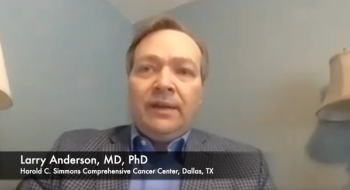
CancerNetwork® sat down with Larry Anderson, MD, PhD, at the 2021 ASCO Annual Meeting to talk about updated data from the KarMMa trial of CAR T-cell therapy idecabtagene vicleucel to treat patients with relapsed or refractory multiple myeloma.
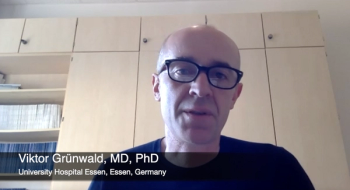
CancerNetwork® sat down with Viktor Grünwald, MD, PhD, at the 2021 ASCO Annual Meeting to talk about how new data from the CLEAR trial serve to further inform clinicians about lenvatinib and pembrolizumab for first-line renal cell carcinoma.
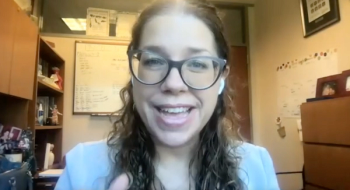
CancerNetwork® sat down with Shannon N. Westin, MD, MPH, at the 2021 ASCO Annual Meeting to talk about the use of adavosertib in PARP inhibitor–resistant ovarian cancer.

CancerNetwork® sat down with Paul M. Barr, MD, at the 2021 ASCO Annual Meeting to talk about data from RESONATE-2 showing sustained progression-free and overall survival in patients with chronic lymphocytic leukemia being treated with ibrutinib in the frontline setting.

CancerNetwork® sat down with Stephen V. Liu, MD, at the 2021 American Society of Clinical Oncology Annual Meeting to talk about pralsetinib for patients with non–small cell lung cancer harboring RET fusions and adequate biomarker testing in the frontline.
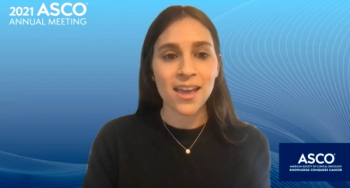
CancerNetwork® sat down with Alison Schram, MD, to discuss her thoughts on research with the greatest potential to positively influence patient care being presented at the 2021 American Society of Clinical Oncology Annual Meeting.
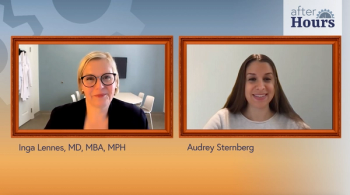
During an After Hours segment of Medical World News®, Inga Lennes, MD, MBA, MPH, spoke about her passion for healthy cooking and how it helps her unwind after a busy week of treating patients.
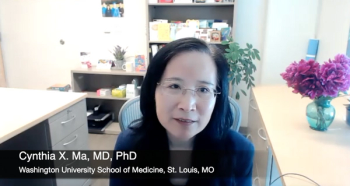
CancerNetwork® spoke with Cynthia X. Ma, MD, PhD, of Washington University School of Medicine in St. Louis, following the American Association for Cancer Research Annual Meeting 2021 about the benefits of the meeting to clinical trial investigators.

CancerNetwork® sat down with Health and Wellness expert Sonia Jhas to discuss best practices for staying active on a busy, demanding schedule.
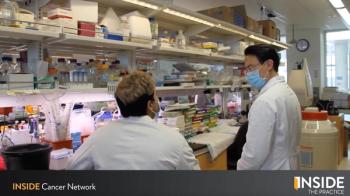
CancerNetwork® spoke with Albert H. Kim, MD, PhD, about a new Brain Tumor Center at Siteman, for which he is the inaugural director.

CancerNetwork® spoke with Cynthia X. Ma, MD, PhD, during the American Association for Cancer Research Annual Meeting 2021 about data supporting the potential use of the exemestane/leuprolide acetate plus pembrolizumab combination.
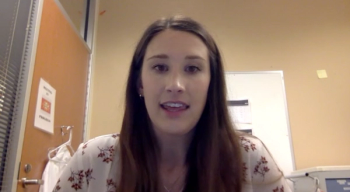
A clinical pharmacy specialist discusses what’s needed to get the REMS program set up and touches on reimbursement considerations for the administration of belantamab mafodotin in patients with multiple myeloma.

A clinical pharmacy specialist details her experience with the REMS program for administration of belantamab mafodotin in patients with multiple myeloma.
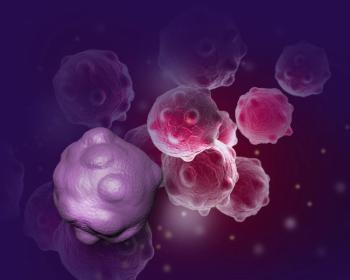
CancerNetwork® spoke with Sanju Sinha of the National Cancer Institute about the resulting data from his research into sex differences associated with using tumor mutational burden to predict response to PD-1 inhibition.

CancerNetwork® sat down with Hans P.A. Van Dongen, PhD, Shobhan Gaddameedhi, PhD, and Jason McDermott, PhD, to discuss their research into how circadian disruptions may lead to changes in cancer-related genes.

CancerNetwork® spoke with Francesco Ravera, MD, PhD, during the American Association for Cancer Research Annual Meeting 2021 to discuss how results of a study aimed at determining pathological complete response in patients with locally advanced breast cancer by cell-free DNA may spare certain patients from needing further biopsies.

CancerNetwork® spoke with Neelam and Sanju Sinha of the National Cancer Institute about their research into sex differences associated with using tumor mutational burden to predict response to PD-1 inhibition.
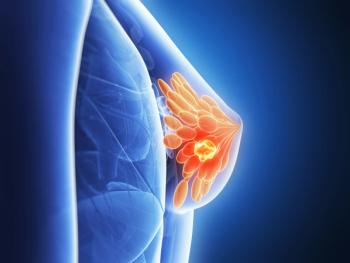
CancerNetwork® spoke with Francesco Ravera, MD, PhD, during the American Association for Cancer Research Annual Meeting 2021 to discuss results of a study aimed at determining pathological complete response in patients with locally advanced breast cancer by either cell-free DNA assessment or traditional MRI.